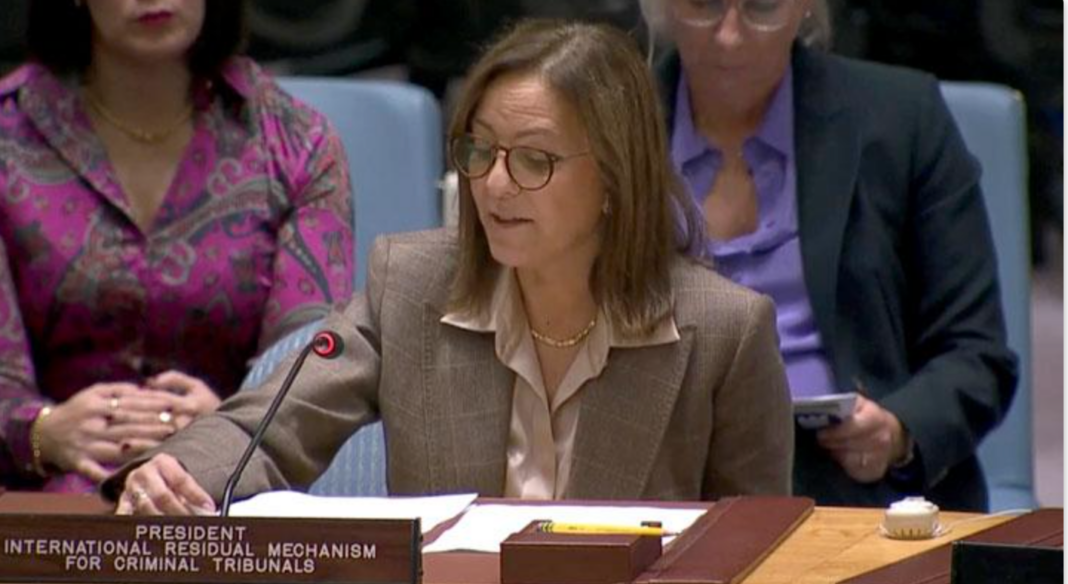Arusha, The Hague, 12 June 2023 – Today the President of the International Residual Mechanism for Criminal Tribunals, Judge Graciela Gatti Santana, presented the Mechanism’s twenty-second progress report to the United Nations Security Council in New York.
President Gatti Santana commenced her address by recalling the Council’s exceptional decision in May 1993 to establish the International Criminal Tribunal for the former Yugoslavia, which “asserted the rule of law and served as a warning to others elsewhere that violations of international humanitarian law would not be tolerated and, more importantly, that they should not go unpunished”. The President remarked that with the recent issuance of the Appeal Judgement in the case against Jovica Stanišić and Franko Simatović, the ambitious journey of the ICTY has come to an end, in so far as the cases against all 161 persons indicted by that Tribunal have now been concluded.
In relation to the ongoing case against Félicien Kabuga, President Gatti Santana referred to the Trial Chamber’s decision of 6 June, in which the Majority found that the Accused is not fit to stand trial and is very unlikely to regain fitness, and decided that it will nonetheless continue the proceedings through an “alternative findings procedure”. She observed that this decision is expected to be appealed.
Turning to other matters, the President praised the work of the Office of the Prosecutor and its fugitive tracking team, noting that the recent arrest of Fulgence Kayishema in South Africa “serves as a stark reminder that even after all these years, justice remains achievable […].” Separately, the President noted that the Mechanism will be responsible for monitoring the proceedings against Kayishema in Rwanda and expressed confidence in Rwanda’s continuing ability to discharge cases relating to international crimes efficiently and effectively.
President Gatti Santana then addressed three areas that require the urgent attention and assistance of the Council, the first relating to the enforcement of sentences. In this context, she conveyed profound gratitude to those 13 States that are contributing to the fulfilment of the Mechanism’s mandate by enforcing sentences, but noted that the burden is not shared equally by Member States. Moreover, due to the limited ability of some States to enforce lengthy sentences, some convicted persons have recently been returned to the United Nations Detention Unit in The Hague, which has repercussions for the Mechanism as well as the Host State.
With respect to the second challenge, concerning the acquitted or released persons relocated to Niger in December 2021, President Gatti Santana underlined that the Mechanism is not in a position to resolve this predicament alone and urged the Council “to appreciate how the status quo is untenable in every respect”.
Finally, the President stressed that arguably the biggest threat faced by the Mechanism is the relentless attempts to undermine its work and that of its predecessor Tribunals, including through genocide denial, glorification of war criminals and the purported re-writing of history, noting also Serbia’s persistent failure to arrest Petar Jojić and Vjerica Radeta. She indicated that in the face of these challenges, one of her key priorities is to consolidate, safeguard and make more accessible the invaluable legacy of the ad hoc Tribunals and the Mechanism.
In closing, President Gatti Santana reflected on the next phase of the Mechanism’s operations, underscoring the significant progress the Mechanism has made with regard to the planning of its future and expressing her determination “to continue pursuing innovative, more efficient ways of operating and to take all necessary steps to keep achieving positive results”.



